Head Injury
Breakstone, White & Gluck Donates Children’s Bicycle Helmets for Lexington Bike Walk ‘n Bus Week
Cyclists of all ages came out strong for Lexington’s Bike Walk ‘n Bus Week in May. Breakstone, White & Gluck was pleased to donate bicycle helmets to children who needed one at events such as the Bike Smart Class for fourth- and fifth-graders and the Bike Art Contest. With each helmet given, children and parents were shown how to properly fit them on their own.
We are also happy to see these two little cyclists stopped by for a Project KidSafe helmet. Thanks ArtsOffRoad Lexington for sending along the photos.
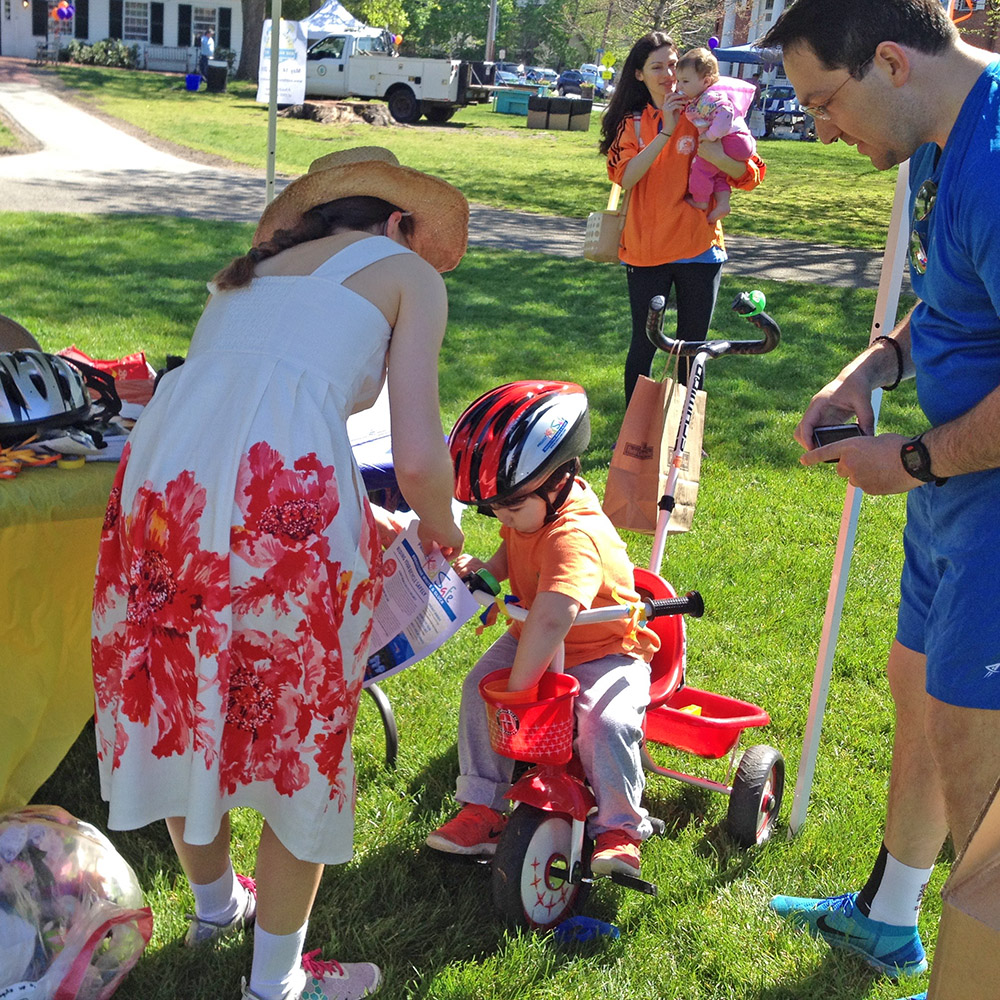
Photos courtesy: ArtsOffRoad Lexington.
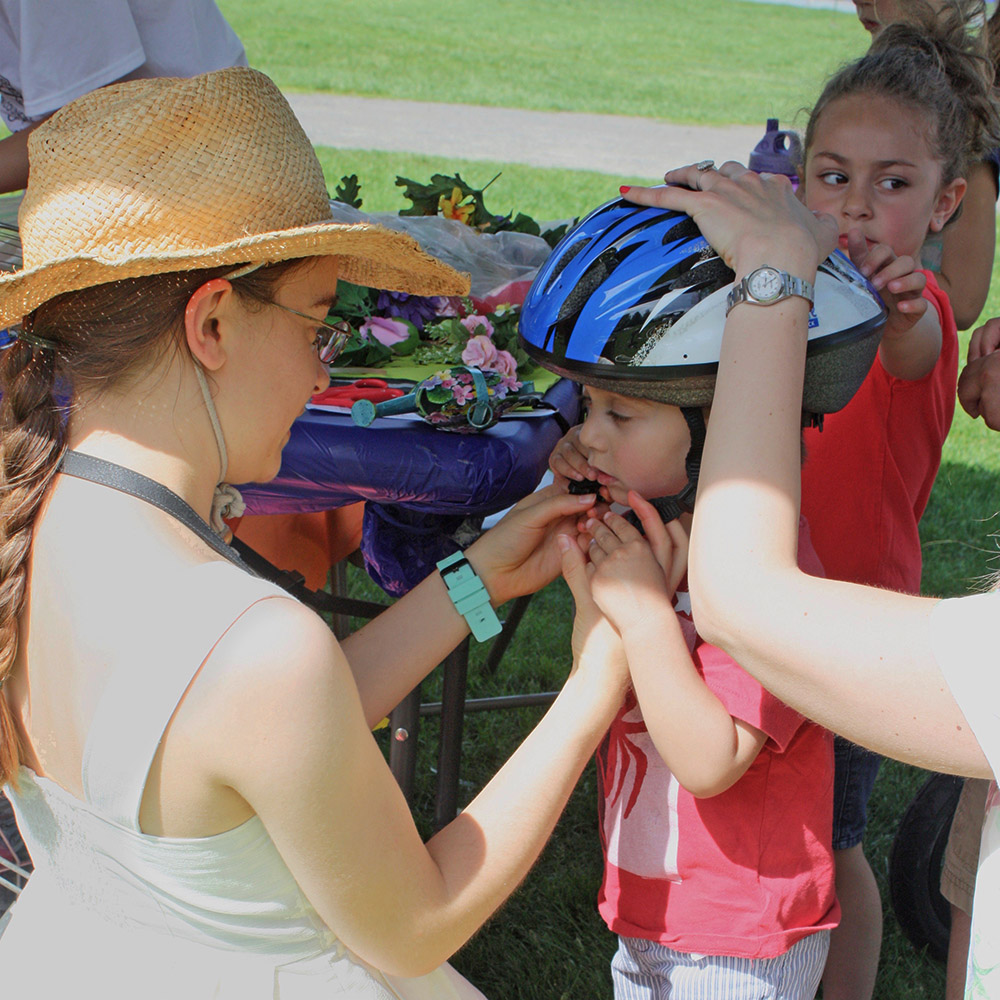
Bike Walk ‘n Bus Week was held from May 14-22 and coincided with Bay State Bike Week. While the rest of the state celebrated cycling, Lexington focused on bicycling, walking and encouraging use of alternate transportation, such as buses.
The organizers were the Lexington Bicycle Advisory Committee, Greenways Corridor and Massachusetts Safe Routes to School. Events included breakfasts, bike rides, a bike parade and bike maintenance workshops.
There are two active committees representing cyclists in Lexington: the Lexington Bicycle Advisory Committee and the Friends of Lexington Bikeways, which coordinated the bicycle helmet donation from Breakstone, White & Gluck. Because of their work and the strong local interest in cycling, Lexington was named a bronze level Bicycle Friendly Community by the League of American Cyclists in 2015.
Breakstone, White & Gluck donated 140 bicycle helmets in Lexington this Spring. It is the third year we have made a donation and it is nice to see the community’s interest. In addition to Bike Walk ‘n Bus Walk Week, Lexington Police gave out bike helmets at Discovery Day on May 28th and showed children and families how to properly fit them.
Breakstone, White & Gluck donated the bicycle helmets as part of our Project KidSafe campaign. Since 2013, we have donated more than 10,000 bicycle helmets to help children prevent head injuries and ride their bicycles safely.
Read about our past events and donations here.
Breakstone, White & Gluck Donates Over 300 Children’s Bicycle Helmets in Westborough, Lexington and Dorchester
These are the days when children just want to be outdoors, riding their bikes. We want them to enjoy the experience and always, always wear a bicycle helmet.
Breakstone, White & Gluck recently made bicycle helmet donations in Westborough, Lexington and Dorchester as part of our Project KidSafe campaign. We are committed to protecting young cyclists and are now in the fourth year of our campaign. Along the way, we have donated over 10,000 bicycle helmets to children who need one, with support from community groups, bicycle safety organizations, police departments and schools which organize bike helmet giveaways.
Wearing a properly fitted bicycle helmet is the best way for cyclists to protect themselves against head injuries from falls and bicycle accidents. Under the law, anyone who is 16 years of age or younger in Massachusetts is required to wear one while riding.
Westborough Bicycle and Pedestrian Advisory Committee
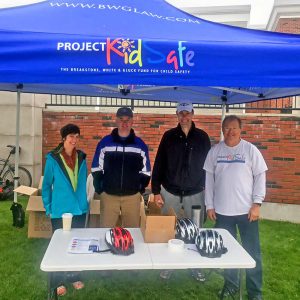
Attorney David White and Bruce Tretter, Westborough Selectman and Chair of the Westborough Bicycle and Pedestrian Advisory Committee, with fellow committee members Ellen Gugel and Glenn McLeod, at Spring Festival in Westborough on May 7, 2016.
We recently partnered with the Westborough Bicycle and Pedestrian Advisory Committee for a third year and distributed nearly 200 bicycle helmets over two weekends.
On April 30th, 120 children’s bicycle helmets were distributed to families at the Boroughs Family Branch of the YMCA of Central Massachusetts. The giveaway was part of Healthy Kids Day. On May 7th, Attorney David White joined committee members and together distributed about 80 helmets at the Spring Festival, a three-day event sponsored by the Rotary Club of Westborough.
Discovery Day in Lexington
Over Memorial Day, Lexington held its 37th Annual Discovery Day, a chance for residents to enjoy music, food and learn about local businesses and town government. Families also had the opportunity to learn about bicycle safety at the Lexington Police Department tent. Police officers gave away 100 of our Project KidSafe bicycle helmets to children, while also showing them and their parents how to properly fit the helmets.
This was the third year Breakstone, White & Gluck has donated children’s bicycle helmets in the Lexington community. The donations have been arranged by the Friends of the Lexington Bikeways.
UP Academy Dorchester
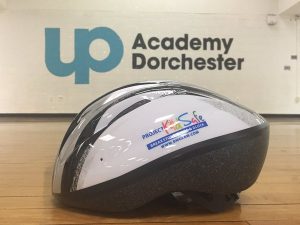
The UP Academy Dorchester wanted to start a conversation with middle school students about bicycle safety. To help, Breakstone, White & Gluck recently donated bicycle helmets and provided safety literature. The UP Education Network is a non-profit management organization which works to turnaround low-performing schools. It operates three tuition-free schools in Boston and two in Lawrence, serving 2,600 of the state’s historically underserved students. A new academy will open in Springfield next Fall.
The UP Education Network was founded in 2010, the year Massachusetts passed education reform to re-start low performing schools. Once a school district, city or state identifies a school needs a restart, the UP Education Network can take on full management for the school. The academies operate inside – not independent of – school districts.
About Breakstone, White & Gluck
Breakstone, White & Gluck is a Boston personal injury law firm which is committed to the safety of all bicyclists in Massachusetts. We have over 100 years combined experience representing bicyclists injured by the negligence of others. If you, or a member of your family, has been injured in a bicycle incident, please feel free to contact us for a free legal consultation at 800-379-1244 or 617-723-7676 or use our contact form. Thank you and RIDE SAFE!
Bay State Bike Week 2016: Have Fun and Be Safe
Welcome back cyclists! Bay State Bike Week is here and many of you are commuting to work for competition, attending commuter breakfasts, and participating in events to make this work week pass a little faster. The goals are to help protect the environment, reduce traffic congestion, get a little exercise, and have fun with other cyclists.
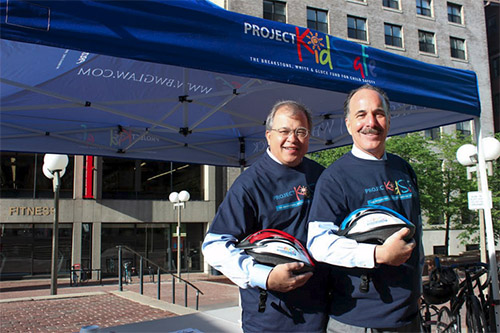 Attorney David White and Marc Breakstone on Boston City Hall Plaza with our Project KidSafe tent and Project KidSafe helmets during Bay State Bike Week 2015. The event was Bike Friday and it was organized by Boston Bikes.
Attorney David White and Marc Breakstone on Boston City Hall Plaza with our Project KidSafe tent and Project KidSafe helmets during Bay State Bike Week 2015. The event was Bike Friday and it was organized by Boston Bikes.
Breakstone, White & Gluck is pleased to participate as well. On Friday morning, we will join cyclists at the Bike to Work Day event on Boston City Hall Plaza. If you attend, please stop by our Project KidSafe tent and say hello to some of our lawyers! Boston Bikes is organizing the event.
Have fun and, as always, ride safely. Here are a few bicycling safety resources from our lawyers, MassBike, the Boston Cyclists Union, and other organizations:
Massachusetts Bicyclists’ Rights and Responsibilities
Our checklist of rights and responsibilities for bicyclists and motorists. Read more.
Wear a Bicycle Helmet
To help protect children and families, Breakstone, White & Gluck donates children’s bicycle helmets through our Project KidSafe campaign. Over four years, we have given away over 10,000 brand-new helmets to children who need one. Along the way, we often meet parents who want their children to be fitted for a helmet but do not have one of their own.
Every cyclist needs a bicycle helmet to protect themselves from a head injury in a crash. Bay State Bike Week is a good time check your existing helmet to see if it needs to be replaced. If it is worn or cracked, it is time for a new one! Learn how to properly fit a helmet. Here is a video with instruction:
“Shifting Gears: Bicyclists & Public Safety”
This 11-minute video was produced by MassBike, in partnership with the Massachusetts Department of Public Health and the Boston Police Department. The video was developed to provide police officers instruction on the laws for cyclists and motorists. But it is a good resource for any cyclist or driver.
Specific topics covered in the video include bicyclists’ right to use the road, dooring, safe passing, yielding to bicyclists on turns, parking in bike lanes, bicyclists’ compliance with rules of the road, hand signals, yielding to pedestrians, lights at night, wrong-way bicycling, and crash investigation.
What Every Massachusetts Bicyclist Needs to Know About Car Insurance
While we hope cyclists are never injured, it can make all the difference in the world to understand how your auto insurance policy works. Many cyclists do not realize this, but you can purchase extra coverage on your auto insurance to protect yourself if you are injured on a bicycle. This is important because there may be times when a driver does not have adequate insurance and you need to rely on your own coverage. Read more.
Facts About Cycling in Massachusetts
We answer questions about lights, hand signals, parking and more. Read more.
Trucks vs. Bikes
The Boston Cyclists Union has published this sheet to educate cyclists on the dangers they face when approached by some large trucks. Please read the sheet so you understand some of the risks.
According to Volpe National Transportation Systems Center, nearly half of all bicyclists and more than one-quarter of pedestrians killed in large truck crashes first impact the side of a truck. When a truck has high clearance, a cyclist can fall in the space between the front and rear wheels.
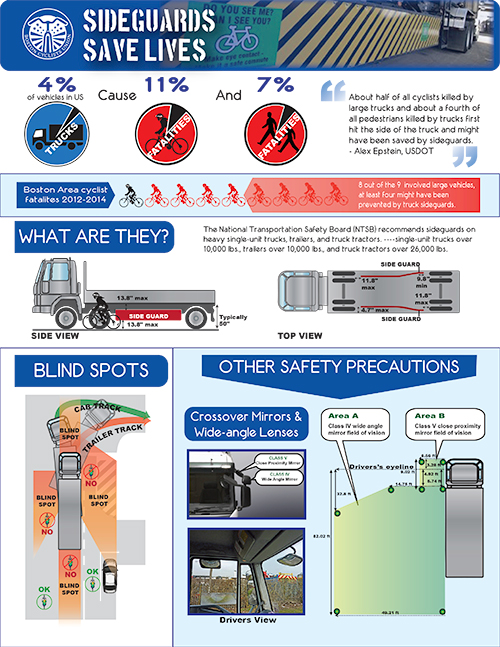
Mandated sideguard on large trucks have reduced cyclist deaths by 61 percent and serious injuries by 13 percent, according to a Transport for London study.
In October 2014, the City of Boston passed an ordinance, requiring truck sideguards, convex mirrors, blind spot awareness decals for city contracted trucks and tractor-trailers of a certain weight. Many trucks do not have to comply with the law, but this may change in the future. Legislation has been proposed to require truck sideguards statewide.
About Breakstone, White & Gluck
Breakstone, White & Gluck is a Boston personal injury law firm which is committed to the safety of all bicyclists in Massachusetts. We have over 100 years combined experience representing bicyclists injured by the negligence of others. If you, or a member of your family, has been injured in a bicycle incident, please feel free to contact us for a free legal consultation at 800-379-1244 or 617-723-7676 or use our contact form. Thank you and RIDE SAFE!
Study: 40 Percent of Americans Would Encourage Children Not to Play Football
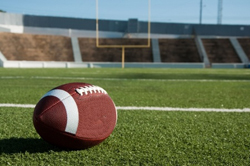 Last summer, the National Football League (NFL) announced it had reached a $765 million settlement with retired players who suffered from concussions and head injuries. But a federal judge has rejected the settlement and the debate about how to address the risk continues.
Last summer, the National Football League (NFL) announced it had reached a $765 million settlement with retired players who suffered from concussions and head injuries. But a federal judge has rejected the settlement and the debate about how to address the risk continues.
Even President Barack Obama has spoken: “I would not let my son play pro football,” he told The New Yorker magazine. But like many of us, he is a fan; he made the statement while watching the Miami Dolphins play the Carolina Panthers.
Recent surveys show many agree with the president, but many do not. In January, a NBC News/Wall Street Journal poll reported 40 percent of Americans would encourage their children to play another sport. Nearly 60 percent answered they would not discourage their children from playing organized football. Other findings include:
- Some 41 percent thought the NFL has taken meaningful action to reduce and prevent concussions; 20 percent disagreed.
- Roughly half of those surveyed with an annual salary of $75,000 or more said they would encourage their child to play another sport. On the other hand, only about 25 percent of those who earned $30,000 or less per would try to steer their child to another sport.
- One third of those who did not attend college said they would encourage their children not to play football, compared to 42 percent of college graduates and 57 percent of people with post-graduate degrees.
The NBC News/Wall Street Journal poll included 800 adults and had a margin of error plus or minus 3.46 percentage points.
Another Poll
In October, a HBO Real Sports/Marist poll reported a deeper divide. Out of more than 1,200 adults, one third said they would be less likely to allow their own son to play football if given the choice. But in the end, 85 percent said they would let their son play. Another 13 percent said they would not and two percent were unsure. (The study did not report on how respondents would feel about letting their daughters play.)
NFL Concussion Lawsuit
The NFL released figures in January showing the number of player concussions dropped 13 percent from 2012 to 2013. It has taken several steps to prevent concussions, including adding neurological consultants to the sidelines and replacing equipment.
But another notable part of the debate came from a recent NFL Nation survey of 320 players, just prior to the Super Bowl. The survey reported 85 percent would play in a Super Bowl with a concussion.
More than 4,500 retired players have filed concussion-related lawsuits against the NFL. The settlement must cover over 20,000 retired players for 65 years. The players accuse the league of long concealing the long-term risk of concussions from players, coaches and trainers. If an athlete suffers multiple concussions, it can lead to chronic traumatic encephalopathy (CTE), a progressive degenerate disease of the brain which is associated with memory loss, depression, paranoia, confusion and dementia.
Related:
Going the Distance, The New Yorker.
Poll Finds 40 Percent Would Sway Children Away from Football, Wall Street Journal.
Read More
Dietary Supplements Are Not a Cure for Concussions, FDA Says
 The Food and Drug Administration (FDA) is warning parents and others concerned about sports concussions that certain dietary supplement makers are making false claims.
The Food and Drug Administration (FDA) is warning parents and others concerned about sports concussions that certain dietary supplement makers are making false claims.
The FDA issued a Dec. 31 warning, advising consumers to avoid dietary supplements claiming to prevent or treat concussions and other traumatic brain injuries (TBI). The common claim is the dietary supplements promote faster healing times after a head injury. But the FDA said there is no scientific evidence to support this claim and it has the potential to cause serious injury. Athletes who return to play too soon because they believe they are cured risk long term health consequences. Repeated injuries which do not fully heal can cause brain swelling, permanent brain damage and long-term disability. They can also be fatal.
Over the past several years, many states have passed legislation to protect student athletes and professional sports leagues have made changes to protect players. In August, the National Football League (NFL) reached a $765 million settlement with 4,500 former players who suffered long-term injuries from concussions. Some of the money will help fund new research into chronic traumatic encephalopathy (CTE). This condition, which causes mental impairment, aggression and dementia, is linked to repeated hits to the head. But it can currently only be diagnosed after death.
In its recent update, the FDA also broadly warned consumers about all products labeled as dietary supplements which are marketed to cure, mitigate, treat or prevent disease. Dietary supplements are regulated differently than other food products and drugs.
There are over 85,000 supplements available today, but they require no approval before going to market. Under the Dietary Supplement Health and Educational Act, the manufacturer is responsible for ensuring a product is safe before going to market and the FDA can take action against any unsafe product after it starts being sold.
Dietary Supplement Companies
In this case, the FDA acted on a tip from the U.S. Department of Defense and conducted market surveillance. It found two companies making improper claims: PruTect Rx of Highlands Ranch, Colorado and Trinity Sports Group Inc. of Plano, Texas. It issued warning letters in September 2012 and both companies changed their websites and labeling.
But in December 2013, the FDA had to warn a third company, Star Scientific, Inc. for marketing a product called Anatabloc with claims to treat TBIs.
Consumer Warning
The FDA said consumers may come across these dietary supplements on the Internet, social media sites such as Facebook and Twitter and retail outlets. They often promise to heal TBIs with ingredients such as turmeric, an Indian spice, and high levels of omega-3 fatty acids derived from fish oil.
Related:
Can a Dietary Supplement Treat a Concussion? No., FDA Update.
Dietary Supplements, FDA.
Read More
Attitudes are Changing on Allowing Children to Play Football
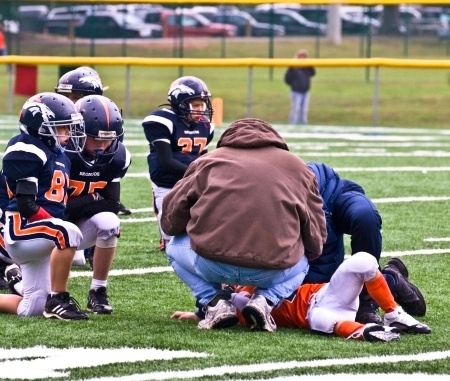 American attitudes about football are changing–even though the sport remains as popular as ever, more adults are re-thinking whether their children should risk head injuries by playing football.
American attitudes about football are changing–even though the sport remains as popular as ever, more adults are re-thinking whether their children should risk head injuries by playing football.
A new study by HBO Real Sports and Marist College Institute for Public Opinion surveyed more than 1,200 adults by phone in July and reports most have learned about the connection between concussions suffered while playing football and long-term brain injury. As a result, one in three adults say they would be less likely to allow their own son to play if given the choice.
Ultimately, 85 percent would let their son play, another 13 percent would not and 2 percent are unsure (The study did not report on how respondents would feel about letting their daughters play).
Seven out of 10 Americans think the benefits of playing outweigh the risk for injury. Also, 74 percent of Americans think football is a good way to build character and boys should be encouraged to play.
One notable point is Americans seem to be placing trust in coaches, parents and even players themselves. Some 30 percent say they are less concerned about the risk of long-term brain injury because these individuals are more informed now and can take greater precautions.
Concussion Prevention for Student Athletes
The majority of states have passed concussion prevention laws for high school athletes. Massachusetts passed a law in 2010, which requires students, parents and coaches to receive annual training on recognizing and treating concussions. Student athletes who are suspected of having suffered a concussion must be removed from play and receive a doctor’s medical clearance before returning. Schools must also report concussions to the state Department of Public Health. The law covers high school and middle school athletes in football, soccer and all other sports.
Today, 49 states have concussion prevention laws. The only exception is Mississippi. Washington was the first state to pass such legislation. In May 2009, the state passed the “Lystedt Law,” named after 13-year-old Zackery Lystedt suffered permanent brain injury in 2006 while playing in a junior high school football game after suffering a concussion.
NFL Settlement
In August, after the survey was conducted, the National Football League (NFL) agreed to settle a class-action lawsuit brought by more than 4,500 players and their families.
The settlement, the result of court-ordered mediation, includes $5 million for men with Alzheimer’s disease, $4 million for those diagnosed after death with a brain condition called chronic traumatic encephalopathy and $3 million for players with dementia. The suit alleged the league concealed what it knew about concussions among its players and failed to protect them from repeated hits in the game. Plaintiffs included Hall of Famer Tony Dorsett, Jim McMahon and the family of former New England Patriots’ start Junior Seau, who committed suicide in 2012.
Youth Football Enrollment Still Increasing
Pop Warner is the nation’s largest youth football league, serving over 250,000 children between the ages of 5 and 15. In recent years, the league has implemented its own safety rules. One rule limits the amount of contact players have to one third of practice time. Another is “when in doubt, sit it out,” when a concussion is suspected.
But enrollment has not decreased as public awareness has grown about concussions and football, officials recently told CNN. Enrollment has increased one percent annually for the past ten years, through 2012.
Related:
Youth Football Takes Hard Hit… One-Third of Americans Less Likely to Allow Son To Play Football because of Head Injury Risk, HBO Real Sports/Marist Poll.
Read More
Student Athlete Concussions Not Being Reported by Massachusetts High Schools
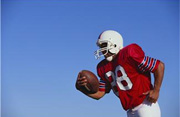
Only 31 percent of Massachusetts high schools and middle schools complied last year with a state law mandating reporting on student athlete concussions. State officials are hoping for greater compliance when new figures come due August 31.
In 2010, Massachusetts passed a law aimed at identifying and preventing concussions among student athletes. Under the law, 689 public and private schools were required to report data for the 2011-2012 academic year. However, only 213 schools submitted figures, and those figures showed that 3,450 students had suffered a head injury or suspected concussion in sports. The figures were recently reported in The Boston Globe.
To encourage reporting this year, the state has changed its form to make deadlines appear more prominent and provide definitions for data.
Massachusetts Law
A concussion is a mild traumatic brain injury caused by a force to the head, such as a fall or car accident. Symptoms typically include headaches, dizziness and memory problems. Left untreated, it can result in long-term brain impairment. In recent years, focus has been on preventing concussions in sports at every level, from the National Football League (NFL) to high schools down to Pop Warner football leagues.
Massachusetts is one of 47 states which have passed so-called “return to play” laws since 2009. The state of Washington passed the first concussion in sports law in 2009.
The Massachusetts sports concussion law requires students, parents and coaches to receive annual training to recognize the signs of a concussion. Students who sustain a concussion are required to sit out and obtain a doctor’s written permission to return to the game.
As a final step, schools must report figures to the Massachusetts Department of Public Health (DPH). Public schools and those subject to the rules of the Massachusetts Interscholastic Athletic Association (MIAA) must comply with the law.
Sports and recreational activities cause 3.8 million concussions each year in the United States, according to the Centers for Disease Control and Prevention (CDC). When an athlete suffers a concussion, they become at risk for suffering another one. Proper rest is important, and teenagers, along with older adults and young children, are believed to have longer recovery periods.
If you are the parent of a student athlete, summer is a good time to learn about the law. Ask your child’s coach when the school will hold concussion training sessions. You can also read a summary of the Massachusetts sports concussion law.
Related:
State revises concussion reporting after weak response from schools, The Boston Globe.
Head Injuries: Boston University Study Investigates Brain Damage in Deceased Athletes
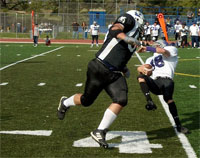 In a new study, Boston University School of Medicine researchers autopsied the brains of deceased athletes who suffered repeated concussions and found the majority showed signs of a degenerative brain disorder called chronic traumatic encephalopathy (CTE).
In a new study, Boston University School of Medicine researchers autopsied the brains of deceased athletes who suffered repeated concussions and found the majority showed signs of a degenerative brain disorder called chronic traumatic encephalopathy (CTE).
The researchers autopsied 85 deceased brain donors, including 82 athletes. This included 34 professional football players. Researchers found a buildup of an abnormal brain protein called tau in 68 brain donors. By contrast, they autopsied 18 brains with no known trauma and found no protein buildup. Tau is associated with CTE, a degenerative condition linked to memory loss, depression and dementia.
The autopsies found the most extensive brain damage in the professional athletes who died after age 50. They experienced the most severe memory loss and personality changes in their final years.
The football players included National Football League (NFL) Hall of Famers running back Ollie Matson and Colts tight end John Mackey. Both died last year after suffering from dementia.
The researchers also described the four stages of CTE. In the first stage, the injured individual experiences headaches and trouble concentrating. Symptoms progress to depression, aggression and short-term memory loss, followed by serious cognitive impairment and dementia.
Last spring, more than 3,000 former players filed a lawsuit against the National Football League, claiming the league hid information about football-related head injuries. The NFL claims the head injury lawsuits have no merit and asked a federal court in Philadelphia to dismiss more than 100 injury claims, saying they should be resolved through the NFL’s collective bargaining process rather than the courts.
Many states, including Massachusetts, have also implemented laws in recent years which mandate concussion training for high school athletes and provide rules for how long students must sit out after a head injury.
The research was reported in the journal Brain.
Related:
Boston researcers find new evidence linking concussions to permanent brain injury, The Boston Globe.
Evidence of brain damage from repeat concussions mounts, The Boston Globe.
NFL asks federal judge to dismiss concussion lawsuits, NFL.com.
BU-Led Research Maps the Route to Dementia, BU Today. Read More
Brain Injury and Concussion Warning for College Athletes
 A Boston sports research organization says college athletes should be provided more information about the long-term consequences of concussions and brain trauma.
A Boston sports research organization says college athletes should be provided more information about the long-term consequences of concussions and brain trauma.
Researchers from the Sports Legacy Institute say the National Collegiate Athletic Association (NCAA) is distributing educational materials which make no mention of the risk of chronic traumatic encephalopathy (CTE) or the symptoms associated with the degenerative brain disease, which has been linked to repeated head injuries.
The Sports Legacy Institute’s recommendation comes as the NCAA medical advisory committee plans to meet this week. The Boston sports organization advocates for awareness and education on concussions as well as proper diagnosis and management.
CTE is a neurodegenerative disease believed to be caused by repeated trauma to the brain, such as concussions or blows to the head. It can only be definitely diagnosed through post-mortem analysis of the brain tissue after death.
In 2010, the National Football League (NFL) began warning players about the potential long-term risks of repeated brain injuries. These include depression, memory problems and early dementia.
The link between the NFL and brain damage in players was identified in 2002, when an autopsy was conducted on former Steelers center Mike Webster. The player, who suffered a heart attack at age 50, had brain trauma that appeared related to his 17-year football career.
The NFL initially claimed there was no link between football and long-term brain damage, but has since acknowledged one. Hundreds of players began filing lawsuits against the league. In early June, the more than 80 pending lawsuits representing 2,000 players were consolidated into a lawsuit filed in federal court in Philadelphia.
The consolidated lawsuit alleges the NFL failed to acknowledge and address neurological risks associated with the sport and then failed to tell players about the risks they faced.
Just this week, national youth sports organization Pop Warner implemented rules to prevent concussions, including limiting the amount of contact drills, one-on-one blocking, tacking and scrimmaging to no more than a third of the total weekly practice time. The second rule change prohibits full-speed head-on blocking or tackling with players more than 3 yards apart.
Related:
- The Sports Legacy Institute
- College Athletes Should Be Warned About Long-Term Risk From Brain Trauma, Researchers Say, The Boston Globe
- Pop Warner Changes Practice Rules for Safety, CNN
- 2,000 Players Unite in Suing NFL Over Head Injuries, CNN
Head Injuries and Concussions Being Tracked Among Massachusetts Student Athletes
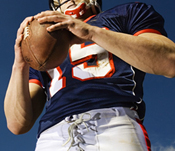 More than 330 students suffered head injuries and concussions last fall at 26 high schools in the region, according to a survey by The Boston Globe. This is the first time Massachusetts high schools and middle schools have been required to report injuries under a new state law.
More than 330 students suffered head injuries and concussions last fall at 26 high schools in the region, according to a survey by The Boston Globe. This is the first time Massachusetts high schools and middle schools have been required to report injuries under a new state law.
Football accounted for the majority of injuries, with 207 reported head injuries. Girls soccer followed with 85 head injuries, compared with 46 among boy soccer players.
Robert Cantu, a clinical professor of neurosurgery at Boston University School of Medicine, told theGlobe that football is the leading cause of head injuries among student high school athletes nationwide. He estimated that for every concussion recognized in football, 6 to 8 go unreported.
Concussions are a brain injury which can result when student athletes are struck in the head, collide with each other or engage in unsafe play. One recent study has documented how excessively heading the ball in soccer causes trauma to the brain as well. Symptoms can include headache, nausea, dizziness and confusion. Concussions have the best chance for recovery when given proper rest.
In 2010, Massachusetts passed a new law aimed at preventing concussions among high school athletes and protecting them from long-term injury. Since last September, students, parents and coaches have been required to receive annual training on recognizing and treating concussions; students who sustain concussions must obtain medical clearance before returning to play. Schools must report the number of injuries to the state Department of Public Health.
The 26 schools reported 338 head injuries. Marshfield and Newton South high schools reported the largest number of head injuries, followed by Lexington, Duxbury and Wakefield. Some coaches in these districts say the higher numbers reflect the community’s work to educate students and parents.
Some schools have gone beyond the requirements of the law and are utilizing ImPACT testing, a computerized cognitive test used to help evaluate whether a student is ready to return to the field. Some school districts are providing free physicals and staffing a doctor at every football game.
Finally, some athletic directors report their coaches are focusing on safe playing techniques while others are seeking new football helmets for players.
Related:
- Massachusetts Concussion Law
- Massachusetts Baseball Safety
- Massachusetts Interscholastic Athletic Association

